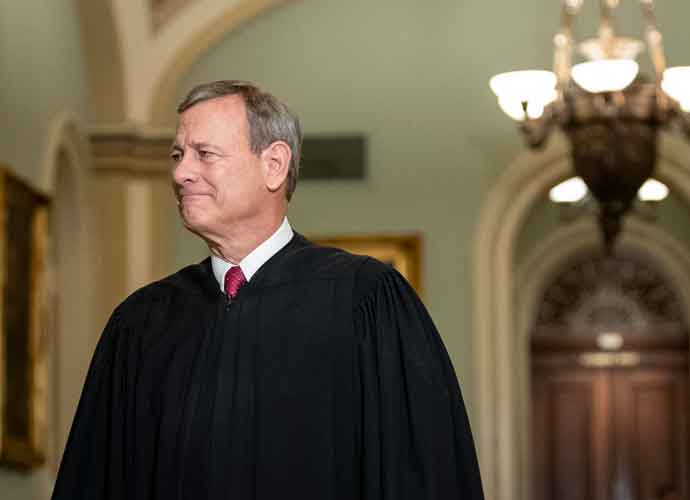

WASHINGTON, DC JANUARY 16: Supreme Court Chief Justice John Roberts arrives to the Senate chamber for impeachment proceedings at the U.S. Capitol on January 16, 2020 in Washington, DC. On Thursday, the House impeachment managers will read the articles of impeachment against President Trump in the Senate chamber and the chief justice of the Supreme Court and every senator will be sworn in. (Photo by Drew Angerer/Getty Images)
In a 6-3 decision on Tuesday, the Supreme Court rejected a legal theory that gives state legislatures unchecked power to set rules for federal elections and draw congressional maps, ultimately reconstructing the federal election processes.
The “independent state legislature” theory is based on an interpretation of the Constitution’s Elections Clause, which states that the “times, places and manner of holding elections for senators and representatives shall be prescribed in each state by the legislature thereof.”
The Supreme Court’s debate was sparked by the case of Moore v. Harper in North Carolina. The state’s legislature drew a voting map after the 2020 census that was immediately rejected by North Carolina’s Supreme Court on the grounds of partisan gerrymandering. Republicans who were in favor of the map’s districting asked the U.S. Supreme Court to intervene, which was also rejected. However, the North Carolina court backtracked on its initial decision, after its makeup changed in the 2022 election, putting the map into effect.
In the majority opinion concerning the independent state legislature theory, Chief Justice John Roberts Jr. wrote that “The Elections Clause does not insinuate state legislatures from the ordinary exercise of state judicial review.” He noted that state courts “do not have free rein” and must be subjected to federal regulation when dealing with federal matters.
Subscribe to our free weekly newsletter!
A week of political news in your in-box.
We find the news you need to know, so you don't have to.
The majority was concerned that implementation of the theory would result in voting maps that were tainted by the political agendas of state officials, such as the one drawn in North Carolina in 2020.
In his dissent, Justice Clarence Thomas wrote that he fears “this framework will have the effect of investing potentially large swaths of state constitutional law with the character of a federal question not amenable to meaningful or principled adjudication by federal courts.”
Thomas worried that the ruling would invite federal courts to exert more power over state courts.
Although the Supreme Court Justices have never endorsed the independent state legislature theory, it had become a favorite among right-wing legal scholars and formed the basis for former President Donald Trump‘s efforts to overturn the 2020 presidential election.
President Donald Trump responded forcefully to a Wall Street Journal article about a message he…
The Supreme Court will consider hearing a case this fall to overturn the landmark decision…
Australian Prime Minister Anthony Albanese announced Monday that Australia will officially recognize a Palestinian state…
President Donald Trump and Russian President Vladimir Putin are set to meet in a summit…
After former Vice President Kamala Harris, who was California's attorney general from 2011 to 2017…
Texas is currently the focus of the national redistricting battle, but Florida may soon join…